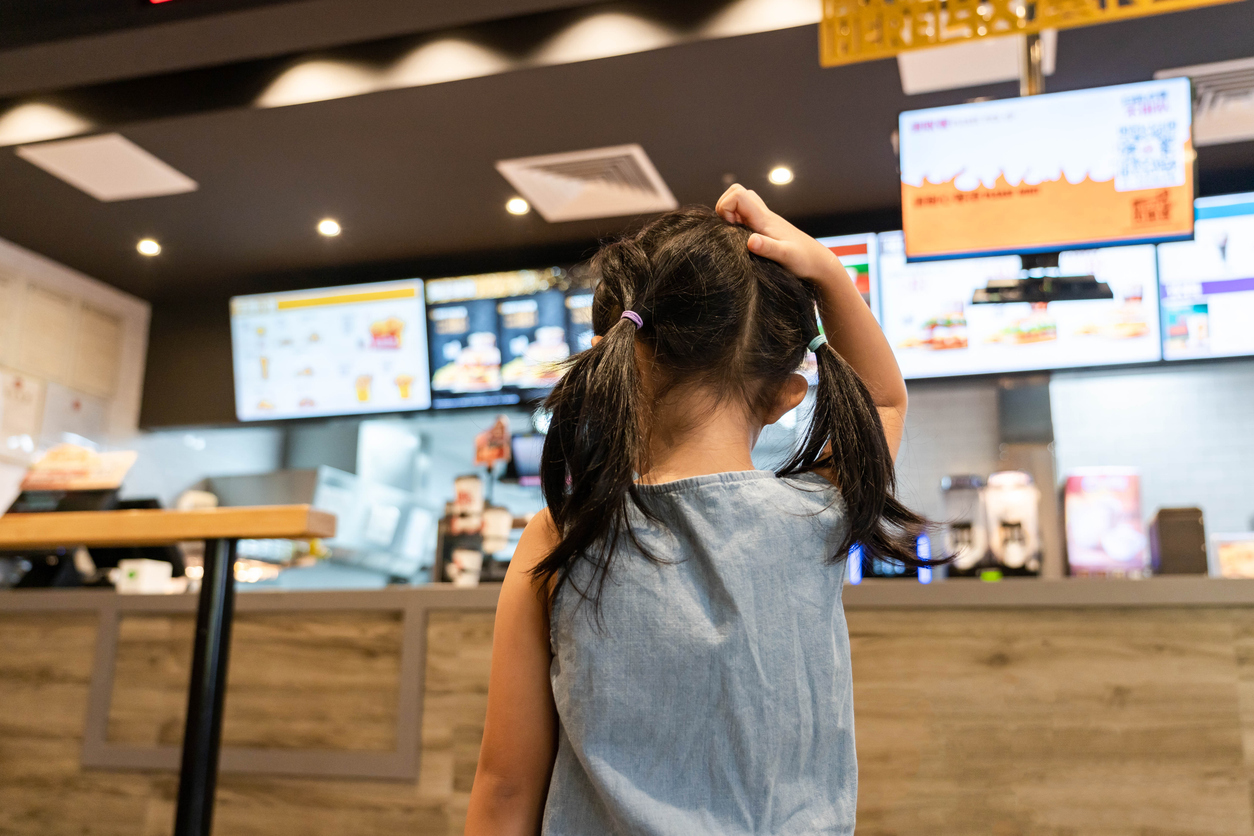Restaurant operations demand precision, speed, and consistency – three areas where artificial intelligence is having a meaningful impact. From reducing waste through smart inventory management to enhancing customer service with predictive analytics, AI tools are revolutionizing how restaurants operate and compete in today's market.
This guide examines the practical applications of AI in restaurant operations, focusing on proven solutions that drive efficiency and profitability. Whether you're looking to streamline inventory control, optimize staffing, or enhance customer experience, understanding AI's capabilities and limitations is crucial for implementing these technologies effectively in your restaurant business.
Understanding Operational Efficiency In Restaurants
When we talk about operational efficiency in restaurants what we’re really focused on is the use of resources like time, staff, and ingredients and how it all comes together to deliver excellent service while minimizing waste. Operational efficiency plays an important role in reducing costs, boosting productivity, and improving the speed of service Ultimately, the reduction in waste throughout the restaurant helps improve profit margins and customer service.
Where AI Enhances Operational Efficiency In Restaurant
AI enhance operational efficiency in restaurants that produce higher output without incurring higher expenses and waste. All this has been made possible with AI, where automation takes place, better decision-making, and also better experiences for consumers. Probably one of the most important lessons learned in the reconfiguration of restaurants is how AI can enhance multiple areas, thus making it more efficient and effective in service operations.
Inventory Management
Inventory needs may be predicted using AI algorithms based on past data and finding those patterns. Computerized stock tracking helps reduce food wastage by getting updates on the inventory level in real-time. To guarantee that restaurants maintain ideal stock levels, AI technologies, for example, can predict demand based on historical sales patterns and notify management when to replenish supplies. Ordering and negotiating favorable terms with suppliers allows AI to streamline operations and thus save money for restaurants by implementing supplier management.
Customer Service
AI transforms restaurant customer service through intelligent automation that enhances both efficiency and personalization. Smart chatbots and virtual assistants handle routine tasks like reservations and FAQs, freeing staff to focus on high-value guest interactions. By analyzing customer data, AI builds detailed profiles of dining preferences, past orders, and dietary restrictions – enabling truly personalized recommendations and service. Leading restaurants have implemented AI systems that reduce response times from minutes to seconds while maintaining 95%+ customer satisfaction rates. The technology doesn't just answer questions faster; it creates a seamless experience that turns first-time diners into loyal customers.
Staff Management
AI optimizes staff scheduling and manages labor costs effectively by analyzing peak hours and improving employee performance data. It allows employees to get the support they need through staff productivity monitoring and detection of training gaps. Additionally, AI supports recruiting since it matches the applicant's skills with job specifications, thus enabling easy identification of capable people. Since AI allows for insight into workers' choices or moods, restaurant businesses can now be in a position to better engage employees and work with a more motivated workforce.
Order Management And Processing
AI transforms order processing from a potential bottleneck into a strategic advantage. Smart systems analyze historical sales data to predict rush hours and quiet periods, enabling precise staff scheduling and inventory preparation. Real-time order tracking sends instant updates to kitchen displays, expediting stations, and servers' devices, significantly reducing order errors while cutting preparation times. The result is a seamless flow from order entry to delivery that enhances both operational efficiency and customer satisfaction.
Marketing Engagement
Modern AI marketing tools turn customer data into actionable insights that drive revenue. By analyzing dining patterns, order history, and preference data, AI creates highly targeted campaigns that consistently outperform traditional marketing approaches. The system segments customers based on visit frequency, spending habits, and menu preferences, enabling personalized promotions that resonate with specific audience segments. Social media engagement becomes more strategic as AI tools identify optimal posting times, content themes, and promotional offers that maximize ROI.
Kitchen Operation
AI brings precision and adaptability to kitchen workflows through a combination of monitoring systems and predictive algorithms. Smart kitchen displays integrate with POS systems to orchestrate timing across stations, while machine learning algorithms adjust prep schedules based on current orders and historical patterns.
Camera-based AI systems (often called visual AI or computer vision) use specialized cameras installed above prep stations to monitor several aspects of kitchen operations:
- Portion consistency by analyzing the size and arrangement of ingredients
- Plate presentation to ensure dishes match established standards
- Food safety compliance by detecting if staff are following proper protocols
- Quality control by identifying issues with ingredient preparation
Temperature sensors and automated cooking monitors help maintain food safety standards, tracking cooking times and internal food temperatures. Together, these interconnected systems create a more organized kitchen that can smoothly handle volume changes while maintaining quality and consistency.
Energy Management And Sustainability
Modern restaurants consume significant energy through equipment, lighting, and climate control. AI systems optimize these operations by monitoring equipment performance and automating adjustments. Smart controls manage ventilation, lighting, and HVAC based on real-time needs, while tracking systems monitor food storage conditions and inventory levels to prevent waste.
Key Features:
- Automated equipment monitoring and temperature control
- Smart lighting and HVAC management
- Inventory tracking to reduce food waste
- Sustainability metrics reporting
These automated systems help restaurants reduce their environmental impact while lowering operational costs.
Benefits Of Implementing AI For Restaurant Operations
More and more restaurants are now using AI to operate more efficiently and deliver high-standard service to their clientele. This is a foray into automation, and businesses do not have any other choice but to keep up with consumers' changing tastes and maintain their competitive positions.
Cost Savings
AI reduces operational process costs and can cut costs largely by performing routine tasks like inventory management and order processing automatically. For instance, AI-based analytics may make it possible to better predict demand when supply is short, and restaurants won't waste anything and will not have excessive stock. Other technologies, such as automated ordering systems, streamline supply chain functions and reduce costs further. Long-term returns stem from AI investments compared to traditional approaches: Restaurants save money while improving efficiency and productivity.
Increased Productivity
AI increases productivity and operations for many restaurants. Through this application, the shift schedules are optimized to ensure that employees are present during peak hours. The chatbots implemented by AI answer client inquiries, thereby leaving room for employees to spend time with the visitors. Since these are reductions in wait times and improvements in service, these are productivity-enhancing adjustments. Restaurants equipped with AI equipment generally improve the overall efficiency of operations and make patronization and service easier for the staff and visitors alike.
Enhanced Customer Experience
AI uses recommendation engines and customized promos according to consumer preference to tailor the dining experience. For example, AI chatbots would provide quick answers to customers' questions, helping them improve customer service. Restaurants such as Domino's use AI to simplify the ordering process in order to improve customer satisfaction and speed of service. Implementing operational AI solutions significantly enhances the customer experience by making the environment more responsive and engaging, which builds customer loyalty and repeat business. Investing money in AI enhances the overall client experience and even builds long-term relationships.
Challenges And Considerations
Although AI offers numerous benefits in restaurant operations, there is a dire need to overcome the problems that emanate from its introduction. Restaurants can reap optimal benefits of AI while reducing potential barriers to the successful adoption of AI by being observant to the problems.
Initial Investment
The use of AI in restaurants is likely to greatly have a cost implication. Costs include investing in AI software and upgrading the hardware and infrastructure necessary for their functionality. Most small to mid-sized restaurants find such colossal costs difficult and impossible to swallow, leaving most of them averse to adopting new systems. Perhaps such financial costs will be minimized by some funding plans, perhaps in the form of grants or loans specific to technology upgrades. Restaurants need to weigh the long-term benefits against short-term costs when making decisions.
Staff Training And Adaptation
For new AI systems to be successfully implemented, people must first be trained. It will take some time for many employees to get accustomed to AI technologies because there is indeed a learning curve. Restaurant owners must prepare systematic training curricula that offer employees practical experience with the new technology. If an adaptation and continuing learning culture is nurtured, staff members are more able to accept such changes. Numerous training sessions and updates will keep the staff well-exposed to the AI solutions, thereby enabling them to make an effective approach with smooth integration into the main system.
Data Privacy And Security
Restaurant owners are aware of the suspicion that AI solutions introduce into restaurants, especially regarding data privacy and security. It is a norm for most AI systems to collect sensitive information, including customers' preferences and sales data, and thus, their protection becomes essential. One of the best practices that involves data regulation is to ensure that restaurants protect the data of their customers to avoid legal issues and lawsuits. The other norms under the best practice entail encryption of sensitive data, periodic updating of security protocols, and staffing employees trained to protect data. These issues help facilitate customer trust and create a safe atmosphere for managing data.
Future Of AI In Restaurant Operations
The eventual growth of artificial intelligence operations in restaurants seems very promising due to new innovations that are popping up.
A restaurant's inventory can be better managed and food waste can be decreased thanks to predictive analysis's ability to accurately forecast customer demand. With automated inventory management solutions hurrying up stock tracking and ordering procedures, AI-powered chatbots will improve client experiences through answering questions and scheduling reservations.
Such advanced tools reduce costs while boosting customer satisfaction and raising operational efficiency. In the long run, AI is probably going to develop to provide even more advanced solutions, allowing eateries to make more informed judgments based on real-time data.
With the improvements in AI technology, more individualized dining experiences, better resource management, and embracing change-restaurant operational practice shifts are expected to be significantly affected. All these will help restaurants position themselves well for success in a competitive market by meeting the expectations of the customer while maximizing profitability.
Achieve Superior AI Operational Efficiency With Checkmate
Operational efficiency and restaurant profitability work side by side. Some operational aspects of restaurants, including inventory control and customer service, are already revolutionized through artificial intelligence. Checkmate streamlines your workflows and augments your decisions with data to make better decisions while enhancing customer experiences. Head into a brighter future for your restaurants by making use of our platform and outstanding AI operational efficiency to support growth and satisfaction today!





